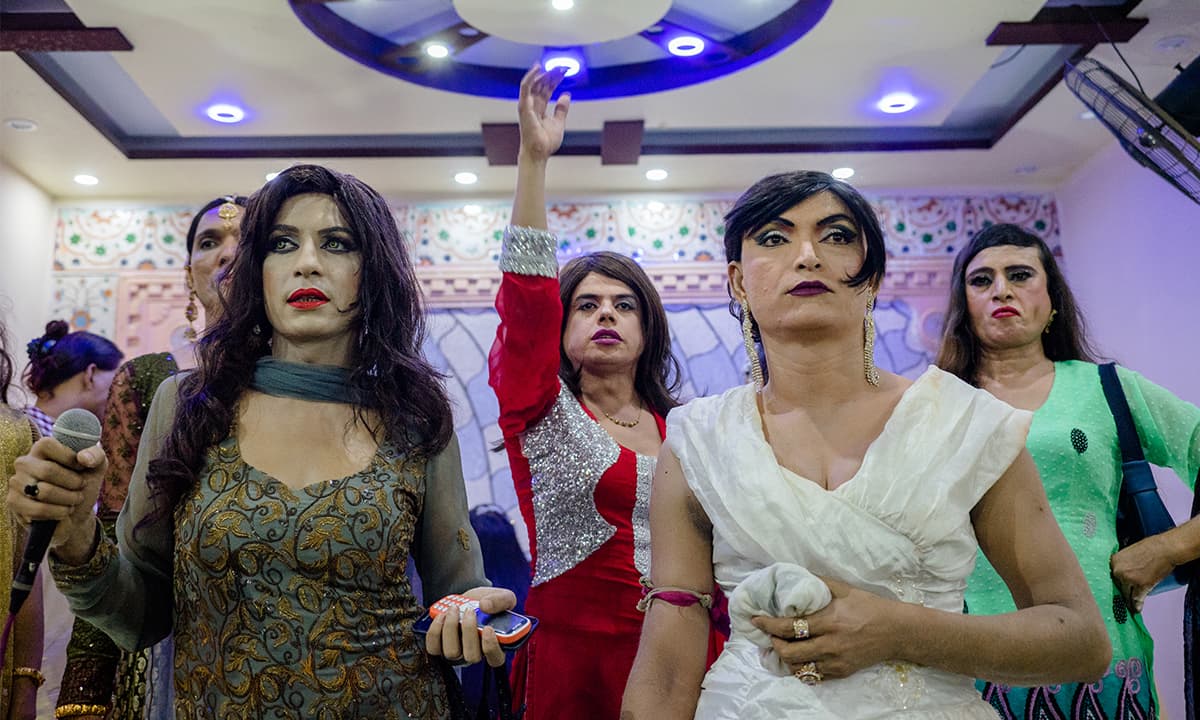
Anchal Mirza fell in love with a 22-year-old man when she was 35. She would talk to her beloved every day before she “bought a ticket and went to see him” in his village in rural Sindh. Soon, they decided to get married.
The wedding took place in a marriage hall in Karachi and was attended by Anchal’s friends and members of her community.
After the wedding, her partner said he wanted to take her to his village. She wore her most decent clothes and went with him even though she was apprehensive that his family would not accept her as his spouse. When she reached the village, her worst fears came true. On the very first day, her partner took out his phone from his pocket and switched on a recording of her groans and gasps. She was aghast: the recording had been made during one of her pre-wedding rendezvous as a sex worker. “My blood went cold,” she says. Her partner went mad with rage and started torturing her. His whole family called her a prostitute.
Anchal ran away — arriving back in Karachi and resuming her life in the big city as a sex worker. Looking back at those days, however, she is rather forgiving and says she understands why he was upset. “How can anyone tolerate their spouse getting physical with someone else?”
In a photograph taken around that time, she looks attractive — even seductive: it shows her prominent nose, a heavily made-up face, high cheek bones, jet black hair falling smoothly below her shoulders and an exposed cleavage.
Anchal looks nothing like that now. Her face has become dark and wrinkled, her cheeks have sunk, her hair has visibly thinned and frizzed and her body looks haggard. Around eight months ago, she was diagnosed with hepatitis C. “I lost a lot of weight. I used to cry every night,” she says as she recalls the days and nights before the diagnosis.
Anchal moved to her hometown, Lahore, sometime after her ‘marriage’ broke down but continues to visit Karachi and other parts of Sindh to meet customers. Now that she is ill, she can no longer engage in sex work and works as a manager for some other sex workers. They all live with her in a small house where they also entertain their customers.
Anchal was born as Mirza Waseem in 1980. She was uncomfortable in her male body from the beginning and always wanted to be a woman. She was still a teenager, having passed her 10th grade, when her parents died. Since her siblings did not accept her feminine ways, she had to leave her house and become a sex worker in Lahore. “If you think like a female and dress like one, you also want to join this line of work,” she says.
Her siblings would tell her to stop being a sex worker. They would call her friends, asking them to bring her back home. She also craved their acceptance — but on her own terms. She offered them more than 110,000 rupees so that they could have her turned into a woman through surgeries and accept her as their sister. But they refused. “We would rather piss on such money [given how it is earned],” is how they dismissed her offer.
A few years later, she expanded her clientele to various towns and cities in Sindh and started living in Karachi. It was then that she became romantically involved with her future partner. Since theirs was a marriage between two men, it did not seek approval of the state and the society. Instead, a guru – an older transwoman who has the self-assumed status of being an elder of the community – supervised the wedding ceremony. The marriage deed, though legally unenforceable, had the weight of a whole group of transwomen and their guru behind it. One of its many provisions covered infidelity: the partner found guilty would pay heavy fines to the other.
In retrospect, Anchal would have liked some provision against mental and physical torture as well — and perhaps also a mention of some kind of a medical insurance.
This excerpt is part of the Herald's February 2019 issue. To read more, subscribe to the Herald in print.







